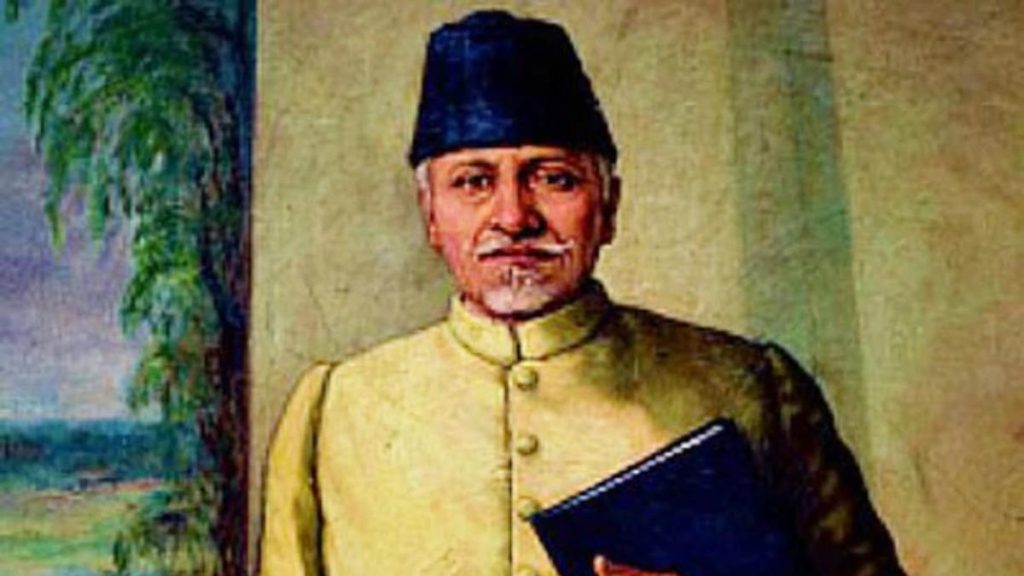National Education Day, observed on November 11th every year, is a significant occasion in India dedicated to celebrating the pivotal role of education in the country’s development and recognizing the contributions of Maulana Abul Kalam Azad, the first Minister of Education in independent India. This day serves as a reminder of the importance of education in shaping individuals, societies, and nations, and is an opportunity to reflect on the progress made in the field of education and the challenges that still lie ahead.

National Education Day, observed on November 11th every year, is a significant occasion in India dedicated to celebrating the pivotal role of education in the country’s development and recognizing the contributions of Maulana Abul Kalam Azad, the first Minister of Education in independent India. This day serves as a reminder of the importance of education in shaping individuals, societies, and nations, and is an opportunity to reflect on the progress made in the field of education and the challenges that still lie ahead.
Maulana Abul Kalam Azad: The Architect of Modern Education in India
To understand the significance of National Education Day, it is essential to appreciate the remarkable legacy of Maulana Abul Kalam Azad. Born on November 11, 1888, Azad was not only an eminent scholar, freedom fighter, and leader, but also a visionary who deeply influenced the direction of education in post-independence India. His contributions as India’s first Minister of Education from 1947 to 1958 laid the foundation for the country’s educational framework.
Azad strongly believed in the transformative power of education and its potential to build a just and equitable society. Under his leadership, many educational reforms were introduced, including the promotion of scientific and technical education, the establishment of universities, and the foundation of key institutions that continue to contribute to India’s progress. His vision included both access to education for all and the development of a system that would cater to the needs of a newly independent country.
One of Azad’s most significant contributions was the promotion of primary education, which he believed was the bedrock of national development. He worked tirelessly to expand access to education, particularly for marginalized communities, girls, and rural populations. Azad’s emphasis on inclusive education made him a champion of social justice, as he advocated for the elimination of social inequalities through education.
Key Contributions of Maulana Abul Kalam Azad
Establishment of Institutions: Azad played a crucial role in the founding of key institutions that have become landmarks in Indian education. He was instrumental in the establishment of the Indian Institutes of Technology (IITs), which are now regarded as some of the premier engineering institutions in the world. He also founded the University Grants Commission (UGC), which oversees the quality of higher education in India. Additionally, the development of the All India Council for Technical Education (AICTE) was initiated under his leadership to regulate technical education in the country.
Promotion of Scientific Education: Azad emphasized the need for scientific and technical education to propel India into the modern age. His vision was to create a knowledge-based society that would empower individuals to contribute to the country’s progress. This led to the establishment of institutions like the IITs, which have since played a major role in producing skilled professionals who have contributed significantly to India’s growth in technology, engineering, and research.
Focus on Primary Education: Azad was a strong proponent of expanding primary education across the country. He believed that literacy was the foundation for social and economic development and worked towards making education accessible to all. He also advocated for adult education, recognizing the importance of educating the adult population, especially in rural areas, to improve their quality of life.
Champion of Secular Education: Azad’s education philosophy was grounded in the belief that education should be secular, inclusive, and free from any religious or caste-based discrimination. He worked towards a system that promoted tolerance, understanding, and harmony among diverse communities in India, ensuring that education could serve as a bridge to unite the country.
Significance of National Education Day
National Education Day is observed to commemorate Maulana Abul Kalam Azad’s vision and to celebrate his unparalleled contributions to the field of education. The day is marked by various educational activities and events across schools, colleges, and universities in India. The Government of India, along with other educational institutions, organizes seminars, workshops, and discussions that highlight the current state of education in the country, as well as the challenges and opportunities ahead.
The main objective of National Education Day is to create awareness about the importance of education and to acknowledge its role in shaping the future of the nation. This day also serves as an opportunity for policymakers, educators, and citizens to reflect on how far the country has come in terms of educational development and what further steps are required to ensure quality education for all.
Educational Initiatives Post-Independence
In the years following independence, the Indian government has made considerable progress in
നവംബർ 11-ദേശീയ വിദ്യാഭ്യാസ ദിനം
